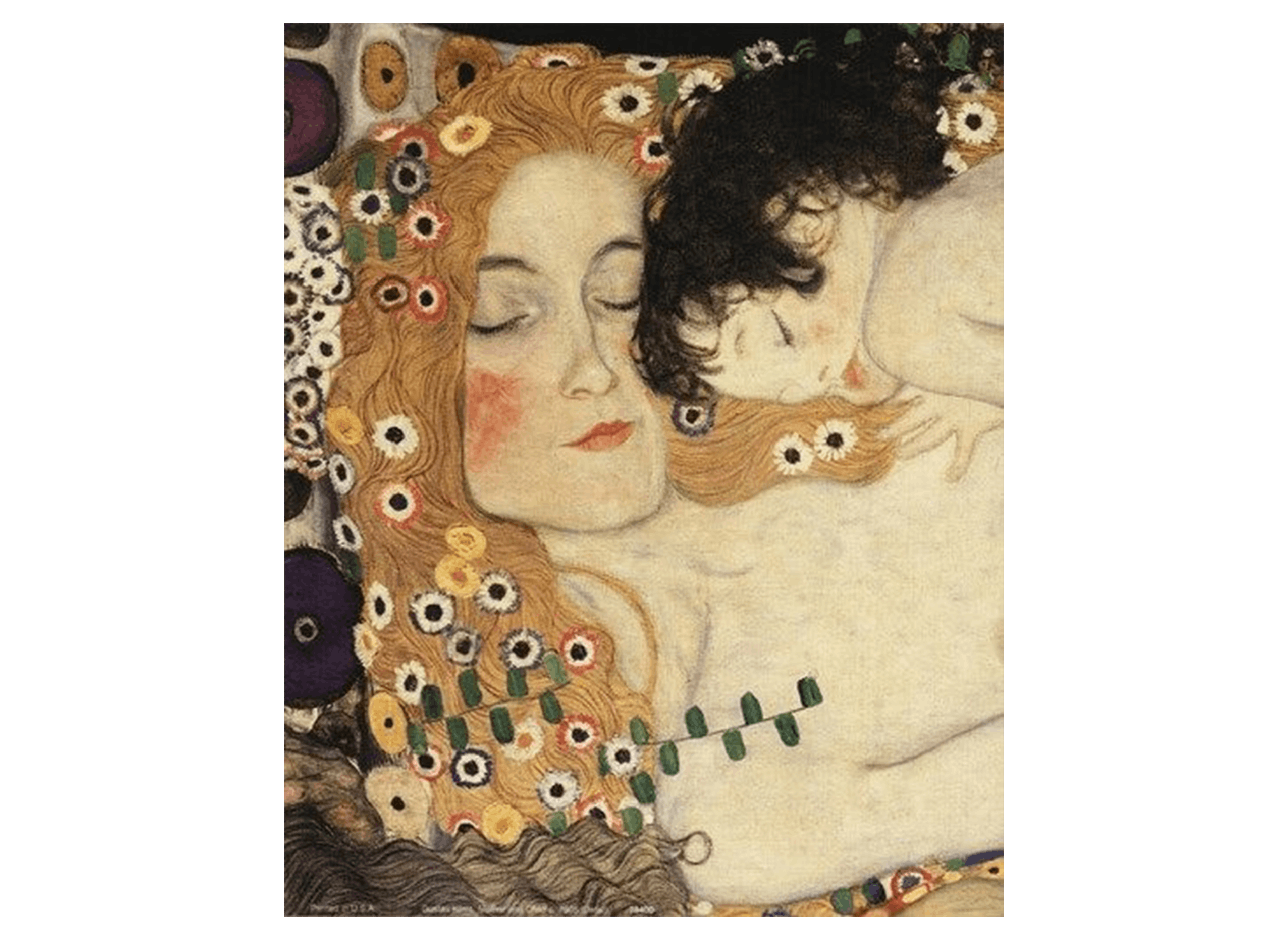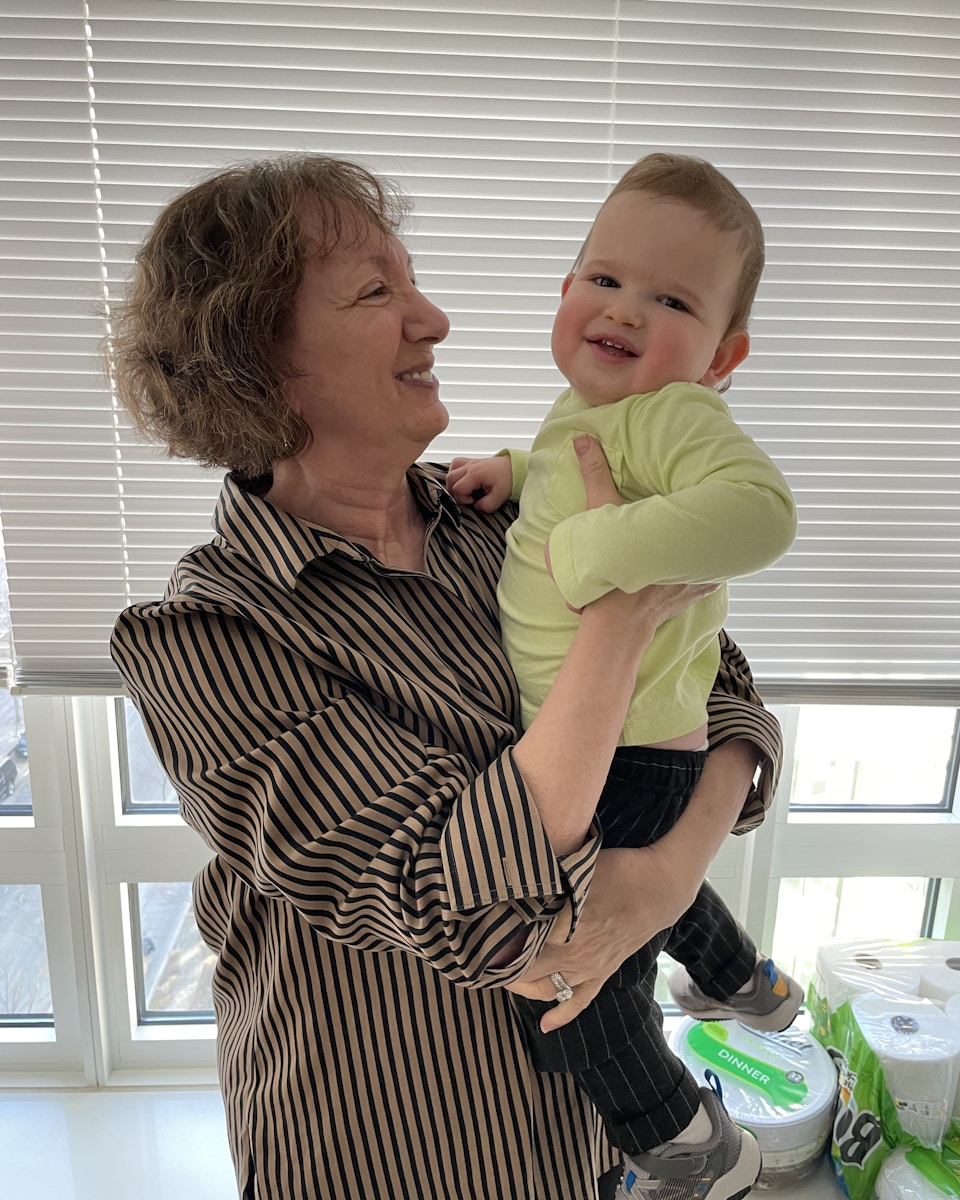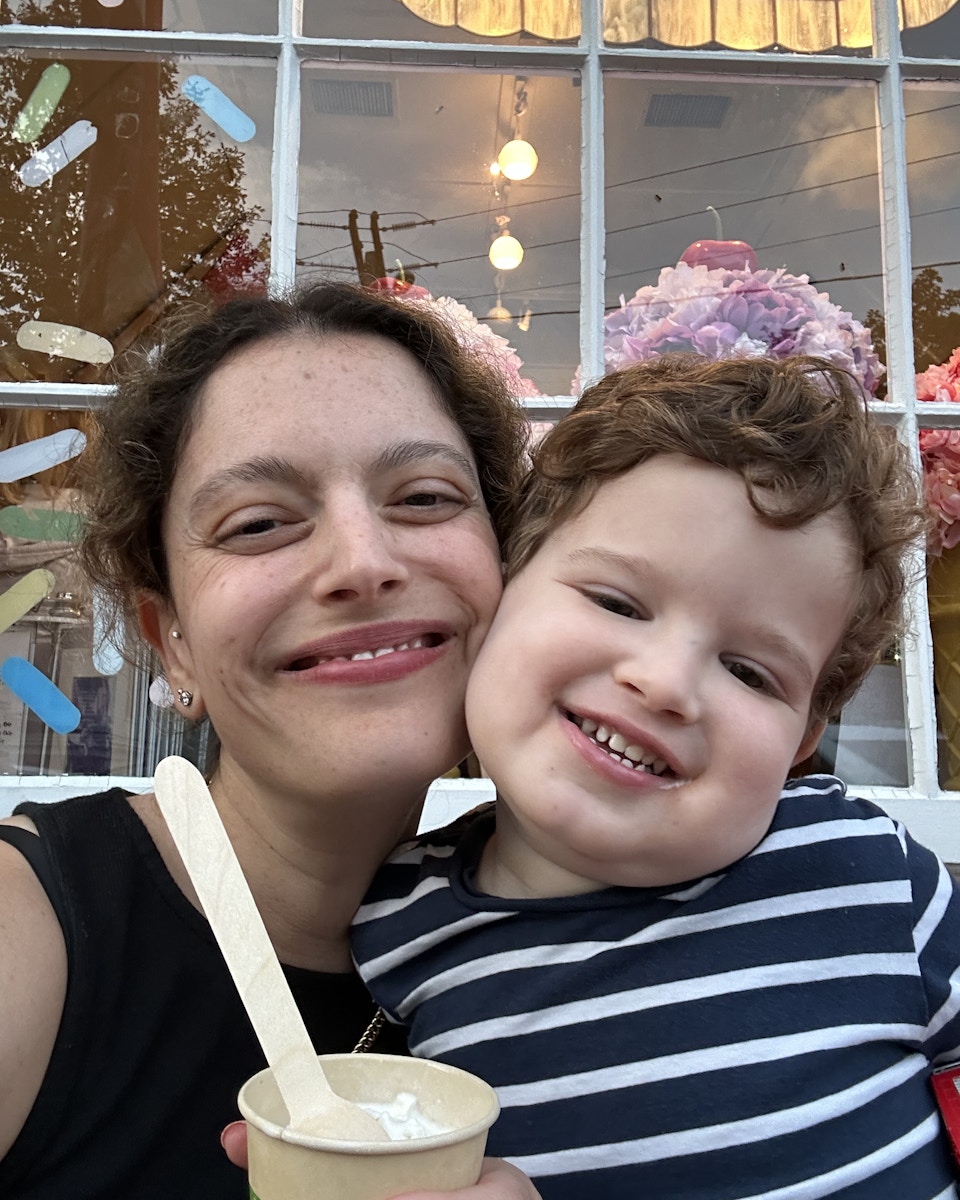
Learning to be a mom, after my own got sick.
By Emily Gaynor Bergman
When I was pregnant with my son, I used to power walk out of each doctor appointment straight to the car, where I’d call my mom and give her an exact play-by-play of the happenings, no matter how insignificant. “I want to hear EVERYTHING. Remember it all,” she’d tell me right before every single one. That’s how my mom and I were. In college, my friends used to joke that I was probably texting her in the corner at parties…and they were usually right. So, when I was preparing to become a mother, I knew that I wasn’t really going to be doing it alone. Even though we didn’t live in the same state, my mom was an extension of me and always reachable by call or text. This gave me the confidence I needed to enter the uncharted territory of becoming a parent.
Our boy, Ari, was born at the end of 2021. I quickly witnessed my mom fall in love with him, and the three of us entered the beautiful dynamic I had dreamt of. Seeing her joy in becoming a grandmother filled my heart with so much warmth. I was especially grateful for the timing—my mom didn’t have the best health history, but she handled it well and I put it in the back of my mind, not ready or willing to confront what this might mean for our futures.
Shortly after Ari turned one, and just as we were getting into the groove as parents, we received the crushing news that my husband Jason’s mother was diagnosed with stage 4 pancreatic cancer. We knew everything was about to rapidly change. We quickly decided to relocate to Boston where my parents lived; I could have their help with Ari, and Jason could make frequent trips to his family in New Jersey. Being near my mom for the first time since leaving for college comforted me during that tumultuous few weeks of both processing this news and making arrangements to move with a toddler (and cat). I thought the next step would be getting situated, but two weeks after arriving in Boston, one of my worst nightmares came true.
Jason was in New Jersey visiting his parents, and I had just put Ari in his crib for the night. I was going to crash on the couch, mindlessly scroll, and fully exhale the way new-ish parents do on a Friday evening. Then, I received a call from my father. Something terrible had happened to my mom. I don’t remember the exact exchange, just the words “unconscious” and “need an ambulance.” It made no sense. I had been with her less than an hour before. But I didn’t have a second to think. I scooped Ari out of his crib in a stupor and ran to their apartment. Within minutes paramedics were wheeling my mom away in a stretcher, and I was left alone with Ari in my arms, discarded plastic from medical equipment strewn around me. I was stunned. I thought, lightning is not supposed to strike twice. A lifelong worrier, my mom always told me to stop waiting for the other shoe to drop. But it had. And I wasn’t even able to talk to her about it.


Overnight, we found out that my mom had suffered a subarachnoid hemorrhage, a burst brain aneurysm caused by an arteriovenous malformation she was born with, but that we were told would probably never cause a problem. For days and then weeks, she laid fully unconscious in the neurological ICU, hooked to multiple machines that were keeping her alive. However, our days started and ended the way they always do when you have a toddler. Ari would wake up babbling and ready for his milk at 6:43 a.m. At first, it was hard to balance the emotions of seeing my sweet child unaware of everything that we were going through, and the absolute misery I was experiencing during daily trips to the hospital. I will never forget being sent pictures from Jason of Ari at a music class where he shook maracas and smiled; the contrast was me looking at my mom, attached to a heart monitor and ventilator. The nurses came in every few hours to try to jolt her awake. Nothing. It felt impossible to comprehend.
Once the initial shock wore off, I had to figure out how to accept that we didn’t know what was going to happen to my mom. That, for the first time in my life, I didn’t have access to her. I had to take the final step into the role of mother, the one I never felt totally ready to do because I always had my own mom as my backup. First came denial. I would text her phone about which flavor scone I was going to get at the local coffee shop or send her a link to an article I thought she’d like, fully knowing that she wasn’t going to see it. I stopped playing Wordle because I could no longer compare my scores with her.
I’m not sure I would have fared as well just a few years prior. I remember occasions in my 20s when I would retreat to bed and hibernate after breakups or stressful periods at work. But when you have a child, you don’t have a lot of time to linger in your feelings. There are playgrounds to walk to, pb&js to be made, moments to appreciate. I dreaded the nights when Ari was asleep, because it was then that I sat in the stillness and dwelled on the “what ifs.” When I would get too deep into that darkness, I tried to imagine the next morning when he would be awake again so I could distract myself with the possibilities of a new day.
I recently listened to a podcast with Dr. Becky. She explained that kids look to their parents in chaotic situations, like how passengers on a flight turn to the pilots for a sense of calm during turbulence. If the pilot is reassuring, it helps even the most anxious passengers manage choppy moments. I didn’t want Ari’s earliest memories of me to be those of sadness, anger, or negativity. I think that I chose to adopt the role of the pilot. I approached each day with as much positivity as I could muster. Even though most of the time it felt like I was an actress, Ari didn’t know the difference; the acting became pretty convincing.
I don’t think it’s necessarily that you should pretend you are okay when you aren’t. I know it’s important to work through grief and fear and to confront pain instead of keeping it bottled up. But I did learn that through routines, community, and support systems, you can unearth the energy to propel forward. I started making decisions more swiftly and confidently because that’s what Ari deserved. When he developed a mysterious cluster of red dots on a small patch of skin, I used my instincts to navigate our first brush with Hand Foot & Mouth disease. When we sat and looked at pictures on my phone and he saw his “nanny,” I was able to tell him about her love for him and it made me feel better instead of worse. I realized that whatever the outcome, I knew who I was and who I was capable of becoming, somewhat thanks to the wisdom my mom had imparted on me for so many years. Even though I wasn’t receiving her constant reassurance, I felt it. And maybe I didn’t actually need as much of it as I always thought I did.
My mom slowly started to wake up after about two months of being unconscious. After that, she spent many months in an in-patient rehab facility, faced more setbacks than I can count, and had one more surgery that allowed her to enter a new chapter—a version of herself that is familiar to me but also foreign in complicated ways. In the grand scheme of things, we got lucky. I still have her and Ari has his grandmother. Our roles have almost reversed. She needs me in ways that I used to need her. Some days I feel like I can do that. I am a mom, after all. Some days it feels like a lot. Jason’s mom passed away at the end of 2023 and that loss was another big blow to our family.
Now, newly three years old, Ari describes any event that occurred in the past as “yesterday.” I decided that I would start looking at what we’ve been through in this way. Yesterday was hard. But today is going to be better.